Advocates in a Mountain Village: Bouyei Family Promotes Environmentally Friendly Lifestyle in Hometown
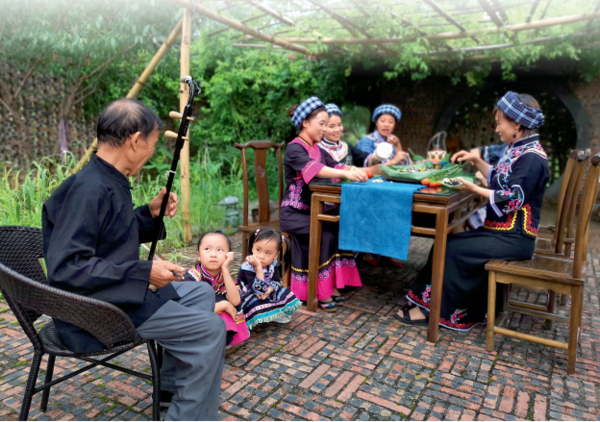
The people of the Bouyei ethnic group live deep in the mountainous areas of Southwest China. From one generation to the next, the Bouyei people rely on traditional farming methods to earn a living and support their families. They know the importance of living an environmentally friendly lifestyle, and in maintaining harmony with nature. Wang Lei, a member of the Bouyei ethnic group, and who is better known by the name A Lei, lives with his family in a small village, Daguan, in Qianxi'nan Bouyei and Miao ethnic groups' Autonomous Prefecture, in Southwest China's Guizhou Province.
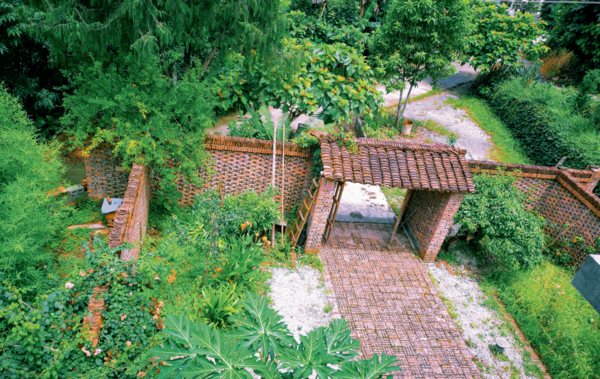
Green Life
A Lei's father, A Kui, began working as a teacher at a rural primary school in 1967. A Kui often told his students, "If people of our generation plant many trees, the following generation, our offspring, will be able to enjoy living in a green environment. We must start to protect the environment in which we live."
A Lei says his father spent more than three decades working diligently in the village, situated deep in a mountain. His father tried his best to help the locals realize the importance of environmental protection. Although his father is now retired, the elderly Bouyei man still works diligently to plant trees and flowers around his family's residence. He reminds his children and grandchildren they must do their best to protect the environment of their hometown.
Influenced by his father, A Lei made up his mind, when he was young, that he would help improve the environment of the small village. He enrolled in Guizhou University in 2002. His major was environmental art design. Since his graduation, A Lei has put what he learned at university into environmental-protection efforts in his hometown. He has promoted the concept of "recycling local resources and saving energy." He has remodeled the residence of his family, to set an example for other villagers.
To avoid wasting resources, A Lei's family has picked bricks, removed from their old house but still usable, and mixed those bricks with newly purchased bricks to remodel their house.
They recycled tile and wood, and used those materials to build their storage room and the gate for their courtyard. A Lei improved the layout of their house, so all of the furniture and items were arranged in a more reasonable way, and so their house looked nice and neat.
A Lei's parents are diligent. They clean their house every day, after they complete their farm work. For Bouyei people, like A Lei's family, working diligently and keeping their home nice and neat are ways to express their love for life.
A Lei and his family like to keep their home "green." In the fields around their house, they plant various flowers and trees. They breed fish in ponds, which they built 20-plus meters from the back of their house.
To save water and other resources, A Lei and his family recycle the water they have used to wash rice and vegetables, and they collect rain water to water the trees and flowers. They also recycle water from the shower, and use it to wash their mops and clean the toilet. They make organic fertilizer to reduce pollution caused by poultry droppings.
Protecting Beautiful Mountain
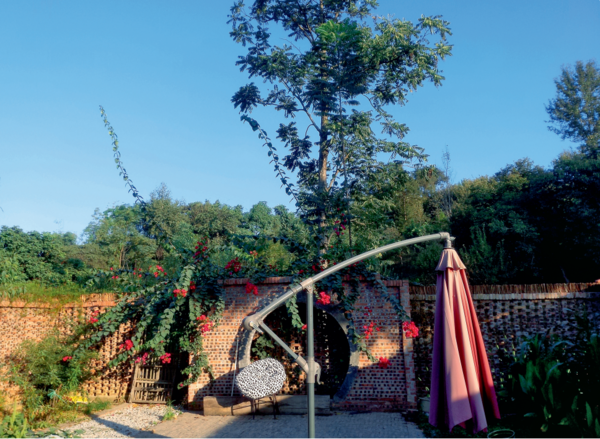
A Lei's wife, He Qun, was his classmate when they both studied environmental art design in Guizhou University. She is fond of cooking and making crafts. After she graduated from university, she started to develop "environmentally friendly methods of cooking." In other words, she used vegetables and fruits, grown by her father-in-law, to cook healthy, organic foods. For example, He mixed flour with spinach, to make green-colored noodles; flour with pumpkin or carrot, to make yellow-colored noodles; flour with purple sweet potato, to make purple-colored noodles; and flour with pitaya fruit, to make red-colored noodles. She also combined the noodles with normal noodles to produce home-cooked, organic "five-colored noodles." She used similar methods to make various colored Chinese pancakes.
He's colorful noodles and pancakes soon became popular among her neighbors. Children from her neighborhood liked those foods the best. "Traditional cooking methods help me reduce the risks of polluting our environment," He says.
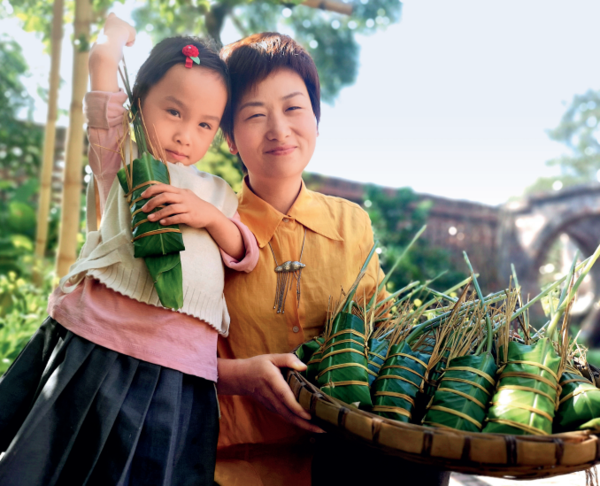
A Lei's sisters, A Xiu and A Zhao, are brave and kind Bouyei women. They often visit other villagers' homes to share effective measures to protect the environment of their hometown.
A Lei says he and his family know it is impossible to rely on just one family's efforts to change the environment of the village. Still, the family believes it is important to have environmentally friendly living habits, as such habits are like a "seed" — a "seed" of respecting and loving nature.
A Lei's family is happy to live in their beautiful and "green" residence. Many people in the village, or from other regions, have visited their home to learn how to remodel their houses, so they can better protect and improve the environment. More than 700 households in A Lei's hometown have learned good practices from his family.
All of those households have installed modern toilets to keep their houses clean. They have also planted trees and flowers around their houses, to make their village more beautiful. A Lei says he hopes his family will set a good example for their fellow villagers, so everyone will do their part to transform their hometown into "a brand-new, beautiful village in Southwest China."
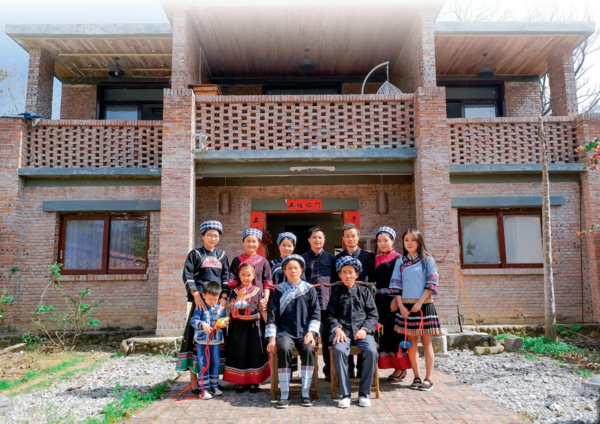
Photos Supplied by Zhang Jiamin and Wang Lei
(Women of China English Monthly February 2020 issue)
Please understand that womenofchina.cn,a non-profit, information-communication website, cannot reach every writer before using articles and images. For copyright issues, please contact us by emailing: website@womenofchina.cn. The articles published and opinions expressed on this website represent the opinions of writers and are not necessarily shared by womenofchina.cn.






.jpg)

 WeChat
WeChat Weibo
Weibo 京公网安备 11010102004314号
京公网安备 11010102004314号